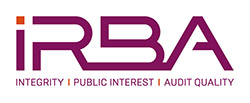South African Concerns
|
The IRBA is mandated by the South African government under the Auditing Profession Act (26 of 2005) to protect the financial interests of the public by ensuring that only suitably qualified individuals are admitted to the auditing profession and that registered auditors deliver services of the highest quality and adhere to the highest ethics standards. In line with the legislation, our objective is therefore to create a robust and relevant framework guiding the services of registered auditors (RAs), and which must respond to our dynamic environment. The beginnings of the South African conversation around legally-supported shareholder transparency and good corporate governance can be found in Chapter 13 of the Commission of Inquiry into the Affairs of the Masterbond Group and Investor Protection in South Africa by Justice H.C Nel (also known as the Nel Commission Report, published in 2001), which looks at the auditor and the expectation gap. The publication of Nel’s report in April 2001 preceded the financial scandals around the collapse the Enron and WorldCom in December 2001 and July 2002 respectively, and the consequent collapse of Arthur Andersen. So Nel and South Africa were leading the way in proposing investor protection reform and audit improvements. In the opening paragraphs of the chapter, Nel states: “Factors such as the growth in size of modern corporations, the growth in the volume of their transactions, the advent and growth of institutional investors, the shift away from the detection of fraud as a primary audit objective and the diversity of the needs of the users of the financial statements, have resulted in a situation where the auditing profession as presently employed cannot fulfil the expectations of the diverse users of the financial statements who each want to be able to make meaningful investment decisions based on the contents thereof.” As part of its work into the investigation of the 1991 Masterbond collapse, the Nel Commission invited comments from interested parties on a consultation paper titled ‘The Role of the Auditor – The Elimination of the Expectation Gap’. The content of the consultation paper outlined the reasons why the Commission believed that the contents of financial statements, the audits of these statements and the resulting auditors’ reports were inadequate for the needs of users and why a ‘structural shift towards transparency was regarded as a necessity’. His report and recommendations were focused on the need to protect shareholders, not least because the Masterbond collapse left thousands of pensioners destitute after losses of R620m. Through the global financial crisis and up until African Bank in 2014, South Africa has continued to experience a number of corporate failures, putting the role of auditors under the spotlight. Various spectacular corporate collapses and business failures included:
Many of these failures are as yet unresolved and creditors and investors have still not been recompensed.
|





